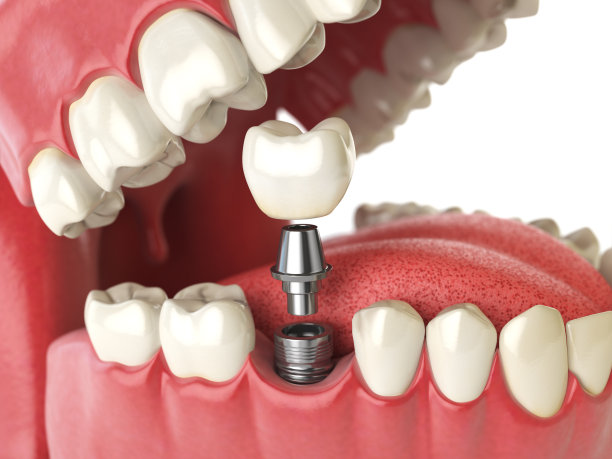Summary: Dental fillings are crucial for restoring optimal oral health, especially when decay or damage occurs. Understanding the essential steps and precautions before getting a dental filling can facilitate a smoother procedure and enhance recovery. This article provides a comprehensive guide on the importance of selecting the right dentist, preparing for the procedure, understanding the filling materials, and post-treatment care. By following these essential guidelines, patients can ensure that their dental filling experience is both effective and comfortable, ultimately maintaining their oral health.
1. Selecting the Right Dentist for Your Filling

Choosing an experienced dentist is paramount when considering a dental filling. A qualified dentist not only has the technical skills but also understands the nuances of patient care. Before scheduling an appointment, research potential dentists by checking online reviews and testimonials, or seeking recommendations from friends and family.
During your consultation, ask about the dentists experience specifically with fillings. Inquire about the types of fillings they offer, as well as their approach to pain management. A dentist who prioritizes patient comfort can significantly enhance your experience and alleviate pre-treatment anxiety.
Additionally, ensure that the dental office is equipped with the necessary technology and adheres to hygiene standards. An up-to-date facility can make a vital difference in the quality of care and the efficiency of your dental procedure.
2. Preparing for the Dental Filling Procedure
Once youve selected a dentist, prepare adequately for your dental filling appointment. Start by understanding the logistics: how long the procedure is expected to take, and whether you need to make any special arrangements for transportation afterward. An informed patient is often a less anxious patient.
Its also crucial to inform your dentist about any existing medical conditions, medications, or allergies before your appointment. This information is vital for ensuring that the treatment plan is tailored specifically to your health needs and minimizes any risks during the procedure.
Lastly, consider practicing good oral hygiene leading up to your appointment. Brush and floss regularly to keep your mouth as clean as possible. This not only reduces the risk of further decay but also helps your dentist work more effectively during the filling process.
3. Understanding Filling Materials and Their Benefits
Before getting a dental filling, its important to familiarize yourself with the different types of filling materials available. Common options include amalgam (silver), composite resin (tooth-colored), porcelain, and glass ionomer. Each material has its own benefits and drawbacks, so having an understanding can help you make informed decisions.
Composite fillings are popular for their aesthetic appeal, as they can be matched to the color of your natural teeth. However, they may not be as durable as amalgam fillings, which are better suited for high-pressure areas such as molars.
Consult your dentist to evaluate which filling material is best for your specific needs. Factors such as the location of the cavity, your dental habits, and your budget should all be considered during this discussion. Understanding these materials can empower you to participate actively in your dental care.
4. Post-Treatment Care for Optimal Recovery
After getting a dental filling, proper post-treatment care is crucial for ensuring the success of the filling and your overall oral health. Initially, you may experience some sensitivity to temperature changes or pressure, which typically subsides over time. Avoid extreme hot or cold foods for a few days while your mouth heals.
Following your dentist’s instructions is key. They may suggest specific foods to avoid, as well as guidelines on when you can return to normal eating habits. Keeping up with your oral hygiene—brushing and flossing—will help prolong the life of the filling.
Don’t forget to schedule follow-up appointments if advised. Regular check-ups allow your dentist to monitor the filling and catch any potential issues early, ensuring your teeth remain in optimal health.
In summary, following essential steps and precautions before getting a dental filling significantly enhances the effectiveness of the procedure while promoting optimal oral health. From selecting the right dentist to understanding the material options and adhering to post-treatment care, being proactive in your dental health journey is crucial.
Taking the time to prepare can lead to a more comfortable experience, reducing anxiety and fostering confidence in your dental care. Engaging with your dentist and following outlined guidelines will help ensure the longevity and success of your dental fillings.
This article is compiled by Vickong Dental and the content is for reference only.
Vickong Dental
Vickong Dental is a large medical group established in Hong Kong in 2008 by professors from well-known medical universities in Guangdong and Hong Kong, as well as medical doctors from key national '985' universities (including Master's supervisors and senior professors). The chain of branches brings together expert dentists with PhDs and Master's degrees from Hong Kong and Mainland China, committed to providing high-quality dental treatment.
"Vickong Dental Practices the University Motto of 'Healing and Serving Society,' with a Stable Operation for Sixteen Years. It Has Been honored with Hong Kong Enterprise Leaders's Choice,' and is a Global Trusted Implant Center for the Nobel Implant System. Recommended by Hong Kong Metro Broadcast and Guangdong Television, it Serves Customers from Over Thirty Countries and Regions, Gaining the Trust and Favor of Citizens from the Guangdong-Hong Kong-Macau Greater Bay Area and Surrounding Cities.

Thousands of customers' unanimous praise
The most recognized and highly recommended dental service by customers in the Guangdong-Hong Kong-Macau Greater Bay Area
We Ensure You Receive Detailed Care and Attention Here
Hong Kong standards, Shenzhen prices, Your Trusted English-speaking dentists

Vickong Dental Medical-Grade Instrument Disinfection Process
Vickong Dental Medical-Grade Instrument Disinfection Process

Vickong Dental Chain: A Warm and Comfortable Environment for Treatment






Appointment Hours

Q&A
Why choose Vickong Dental?
Vickong Dental practices the university motto 「Medicine to Benefit Society」, with each branch bringing together highly qualified dentists with doctoral and master’s degrees from Hong Kong and the Mainland, and has maintained seventeen years of steady operation。Recipient of 「2024 Hong Kong Enterprise Leaders Brand」, 「2025 Hong Kong Enterprise Leaders Brand」, a Nobel Biocare Global Trusted Implant Center, and a brand recommended by Metro Radio Hong Kong and Guangdong TV。
To date, we have served customers from more than thirty countries and regions,earning exceptionally high word-of-mouth recognition and trusted recommendations from residents across the Guangdong-Hong Kong-Macao Greater Bay Area and surrounding cities
We have eight major branches in Zhuhai、Shenzhen,and a consultation and service assurance center in Hong Kong,so you can book a free consultation at any time for any questions,which is very reassuring.
If I do not accept the quotation after the CT scan, will I be charged??
No! As long as the actual treatment has not started, you will not be charged any fees.
Will there be any additional charges during the treatment process?
No, there won’t be any additional charges. Before treatment begins, we will clearly explain the treatment plan and its corresponding fees. Only after the patient agrees and signs the consent form will we proceed with the dental service.
Can I pay in Hong Kong dollars?
Yes. Vickong Dental accepts payment in Hong Kong dollars. The amount will be converted based on the exchange rate of the day, and the applicable rate will be clearly communicated to you in advance.
Can I reschedule my appointment at any time?
Yes. Please contact us via **WeChat** or **WhatsApp** as early as possible, providing your original appointment time and details, along with your preferred new date and time slot for rescheduling.













